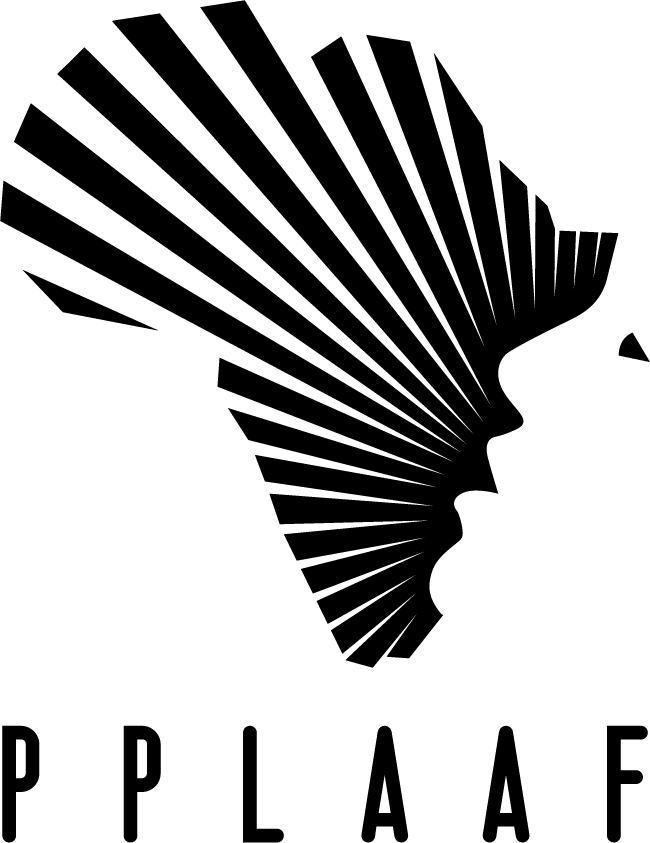The principal charge against South-African former President Jacob Zuma, originating with claims from whistleblowers working with the Platform to Protect Whistleblowers in Africa (PPLAAF) is of “state capture”. The local term is in widespread use. State capture is more than simple corruption. It is the pillage of national companies and institutions, corrupting the people of power, as well as changing the country’s laws, so they would all work in the private interest’s interest.
The three Gupta brothers moved from India to South Africa in the 1990s and turned a computer parts business into a conglomerate with properties in media, mining and professional services. One of President Zuma’s sons, Duduzane, has worked for the family.
Mosilo Mothepu is the first whistleblower to have stepped forward. Mothepu served as Chief Executive Officer at Trillian Financial Advisory, a South-African consulting firm and a subsidiary of Trillian Capital. The firm is owned by Salim Essa, an associate of the Gupta family.
Feeling lied to by her superiors about the company’s activities, Mothepu resigned from Trillian in June 2016. Although she feared legal consequences and being sued for defamation, Mothepu decided to speak up. She sent a statement to Thuli Madonsela, the former Public Protector, an ombudsman whose independence is guaranteed by the Constitution, which resulted in the publication in October 2016 of “State of Capture”, report on the links between the Gupta Family and President Zuma. She then testified in front of South-African parliament in October 2017.
The “State of Capture” report investigated claims of “alleged improper and unethical conduct by the president and other state functionaries relating to alleged improper relationships and involvement of the Gupta family in the removal and appointment of ministers and directors of State Owned Entities (SOEs) resulting in improper and possibly corrupt award of state contracts and benefits to the Gupta family’s businesses.” President Zuma unsuccessfully applied for a court order to prevent the publication of the report on 14 October 2016, Madonsela’s last day in office.
Within days of Madonsela’s report publication, Trillian’s then-chairman, Tokyo Sexwale, announced a wide-ranging internal probe into the former executive’s allegations, led by attorney Geoff Budlender. The investigation ended in the publication of “The Budlender Report”.
Mothepu’s statement was then leaked by an unknown source to the Sunday Times which resulted in the publication in October 2016 of an article showing the links between the Gupta Family and President Zuma. The Sunday Times failed to confirm that Mothepu was not the source of the leak and she subsequently faced lawsuits from Trillian alleging cyber-crime, fraud, and theft among other charges. Another Trillian whistleblower, inspired by Mothepu’s action, decided to speak up: Bianca Goodson. Goodson served as the Chief Executive Officer of Trillian Management, another subsidiary of Trillian Capital. Noticing shady activities as well, Goodson left Trillian in April 2016. A year later, Goodson released a detailed statement on Trillian’s activities through PPLAAF and testified in front of South- African parliament in November 2017.
In early 2017, two media organisations alongside PPLAAF received what was then called the ‘GuptaLeaks’: hundreds of thousands of documents, emails, etc., sent between the Guptas and their associates, showing the extent of the Gupta family’s control over politicians and state-owned companies, and the involvement of many international firms with the Gupta family’s businesses.
Many other revelations were made concerning the case, exposing government firms such as state-owned electricity-utility company Eskom and international firms HSBC and consulting firm Mckinsey, among others. McKinsey was involved in landing Eskom contracts for Trillian and received illegal payments from the company.
On December 13th, 2017, a South African high court ordered President Zuma to establish a judicial inquiry into the alleged claims that he and his son Duduzane were involved in state capture. In a separate ruling, the court stated President Zuma’s attempt to block the release of the “State of Capture” report by the Public Protector was abusive. The government investigation was officially launched on January 25th, 2018.
On January 16th, 2018, McKinsey South Africa’s branch has been served with an asset seizure order initiated by the Asset Forfeiture Unit, part of the National Prosecuting Authority. This order arises from the illegal payment of monies from state owned electricity utility, Eskom, to McKinsey and Trillian. McKinsey has had 1.1 billion rands seized and Trillian 95m rands.
On January 19th, 2018, with PPLAAF’s support, the South African Federation of Trade Unions (SAFTU), comprised of 700.000 South African union workers, filed charges against Trillian to gather evidence in support of both criminal charges and civil forfeiture including fraud, theft, corruption and money laundering. In another procedure, South Africa’s state-run Asset Forfeiture Unit (AFU) has moved to seize alleged illicitly obtained assets of Trillian.
PPLAAF stood by Goodson’s and Mothepu’s sides, providing them with a legal counsel of their choice and financial support, assisting them with their testimonies, evaluating the risks they faced and promoting their cases on national and international media.
PPLAAF has also partnered with South African media amaBhungane and Daily Maverick, to provide access to the GuptaLeaks through a single portal – Investigative Dashboard via the Organised Crime and Corruption Reporting Project (OCCRP) with the support of Finance Uncovered.
PPLAAF has also worked with the AFU and SATFU team that recently achieved the promising milestone of seizing the assets of Trillian as being the suspected proceeds of crime.
At the heart of the affair are allegations that the Guptas had excessive influence over South African politics, from which they profited to shift political appointments and illegally land government contracts.
The result of the putting of state-owned enterprises and other governmental institutions in the hands of people looting their funds, according to ex-finance minister Pravin Gordhan, is that “150bn-200bn rand ($11bn-15bn) has been looted.”
Illegal landing of government contracts
In their testimonies, Mothepu and Goodson unraveled how Trillian was using its connections to illegally land lucrative government contracts. The company planned to generate revenue through access to state-owned entities such as South African electricity supplier Eskom and logistics company Transnet. Trillian ostensibly used political connections to create and secure large deals for partners who would carry out the work. In exchange, the company received as much as 50% of the contract value.
A legal challenge between Trillian’s CEO and his former partners revealed how Trillian allegedly earned millions of rands from their business with Transnet.
In addition, three Trillian companies were named in the Public Protector report as having contributed an amount of 235-million rands towards the Gupta family consortium’s purchase of the Optimum Coal mine, the coal mine that supplies Eskom’s power station.
Political appointments
Also revealed by whistleblowers was how the firm allegedly pushed for the Finance minister Nhlanhla Nene being fired and planned to exploit access to the National Treasury under his replacement, Des van Rooyen. The minister was abruptly fired and replaced by Van Rooyen, who had been in a business relationship with the Guptas beforehand. Having revealed the evidence on Nene’s removal by the Guptas, Mothepu became known as the “NeneGate Whistleblower”.
In another case, deputy Finance minister Mcebisi Jonas stated in a sworn affidavit to the Public Protector that he had been offered over $40M by one of the Gupta brothers if he accepted to be nominated Finance minister and then replace key executives in the National Treasury. When he declined the offer, he was offered $4M in cash on spot for him to change his mind.
Global companies
Some of the biggest global companies in business found themselves entangled in the state capture affair and the work they did for the Guptas.
The vast corporate landscape included shell and pass-thru companies and used secrecy jurisdictions, such as Dubai, to facilitate money-moving and receive illicit payments. Other companies, with substantive performativity, served the same parallel purpose. These companies aesthetically operated out of Dubai (Accurate, Global Corporation and Gateway etc); South Africa (Linkway Trading, Mabengela, Elgasolve, Sahara, Oakbay) among other jurisdictions from Hong Kong to Lesotho and London.
The money was siphoned from state-owned entities such as Transnet and Eskomand, repurposed or diverted for other means ranging from personal gain to ostentatious shows of power and wealth.
KPMG, one of the biggest global audit companies, was Linkway’s auditor during a period where the company acted as a laundromat siphoning monies from the Free State’s Estina project, designed to support small black dairy farmers. Instead, monies were funneled to Dubai and part of it returned for the Guptas wedding. The firm has since apologized for the “quality” of its audit.
A significant beneficiary of Gupta-linked contracts, KPMG wrote a report supporting the claims that the South African Revenue Service (SARS) had “gone rogue”. Its report led to Pravin Gordhan, former Finance minister, being charged. The firm has since admitted they had no evidence to support the fact that Gordhan knew about the unit “going rogue” and acknowledged KPMG’s contribution to the “state capture”.
As a result, KPMG chief executives and partners in South Africa have left the firm. KPMG repaid the money it received for writing the report on SARS, and donated millions to NGOs.
Also revealed by Goodson is the information that international consulting firm McKinsey did highly-paid work for Eskom. Documents show that McKinsey worked with Trillian Capital as part of winning contracts from the utility.
McKinsey says it never entered into a formal contract with Trillian or made payments to the company, and there are letters showing that McKinsey warned Eskom that doing business with Trillian is risky.
Goodson, however, has shown evidence that McKinsey treated Trillian as an “unwanted piece of baggage” and showing how a McKinsey representative stated that “[supplier development] doesn’t really matter as long as you get your percentage”.
International Bank HSBC allegedly failed to close accounts that were linked to the Guptas although their South Africa staff warned them of suspicious activities.
Public relations firm Bell Pottinger helped the Guptas to brand the attacks on them as having a racial background. The firm experienced severe problems keeping clients as a result and is currently going into insolvency.
SAP, a German software firm, has launched an internal investigation and found that more than $6M of commissions were paid to companies linked with the Guptas for contracts with state-owned companies. The company sent the materials to American authorities and announced it will no longer pay commission to SAP employees securing contracts in countries scoring badly on Transparency International’s Corruption Perceptions Index.
For additional information:
PPLAAF:
- Bianca Goodson’s statement on PPLAAF’s website
- Press Release: New Revelations on South African State Capture, September 29th, 2017
- South Africa: Authorities to seize illicitly gained Gupta-linked assets, January 16th, 2019
The Daily Maverick:
- 2017 Daily Maverick South African Persons of the Year: The Whistle-blowers, Jessica Bezuidenhout, Rebecca Davis, December 21st, 2017
Financial Times:
South Africa whistleblower complains of political persecution, Joseph Cotterill, November 8th, 2017
Bloomberg:
McKinsey Letters Add Twist to South Africa Corruption Scandals, Sam Mkokeli, Janice Kew and Antony Sguzzain, October 3rd, 2017
BizNews:
- Smoking gun: Ex-Trillian CEO reveals how Essa ‘opened taps’ for McKinsey, Bianca Goodson, September 28th, 2017
- Sage’s firing of whistleblower Bianca Goodson: Here’s 7 unanswered questions, Gareth van Zyl, October 17th, 2017
7Q2:
- Sygnia offers Gupta whistle-blower Bianca Goodson a job, October 3rd, 2017
amaBhungane:
- The Woman Who Blew the Whistle, Susan Comrie, August 9th, 2017
- The McKinsey dossier part 1 – how McKinsey and Trillian ripped R1.6bn from Eskom, September 14th, 2017
- Whistleblower: How Trillian scored big by connecting officials and consultants, Susan Comrie, September 27th, 2017
ENCA:
- Saftu welcomes AFU’s action to recover Gupta-linked ‘proceeds of crime’, January 21st, 2018
- Explosive claims as former Trillian executive testifies, November 4th, 2017
Reuters:
- In another blow to Zuma, South African top court orders influence-peddling inquiry, Tanisha Heiberg, December 13th, 2017,




